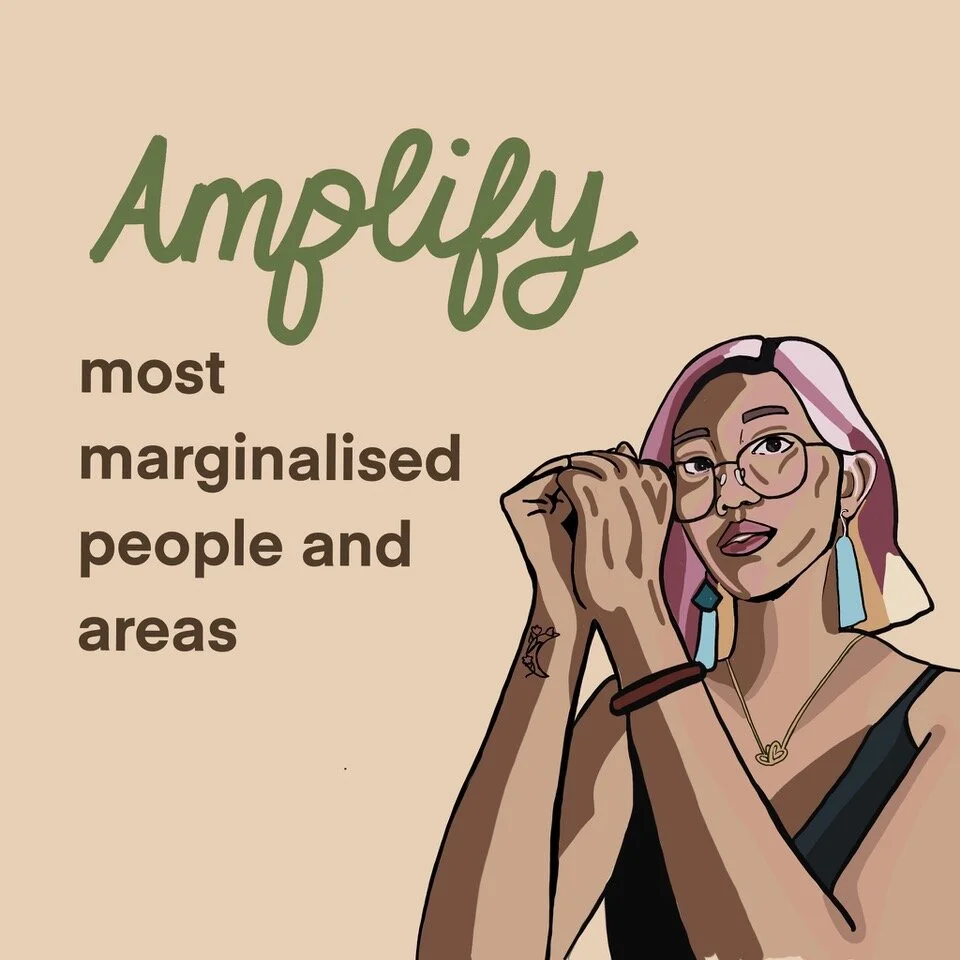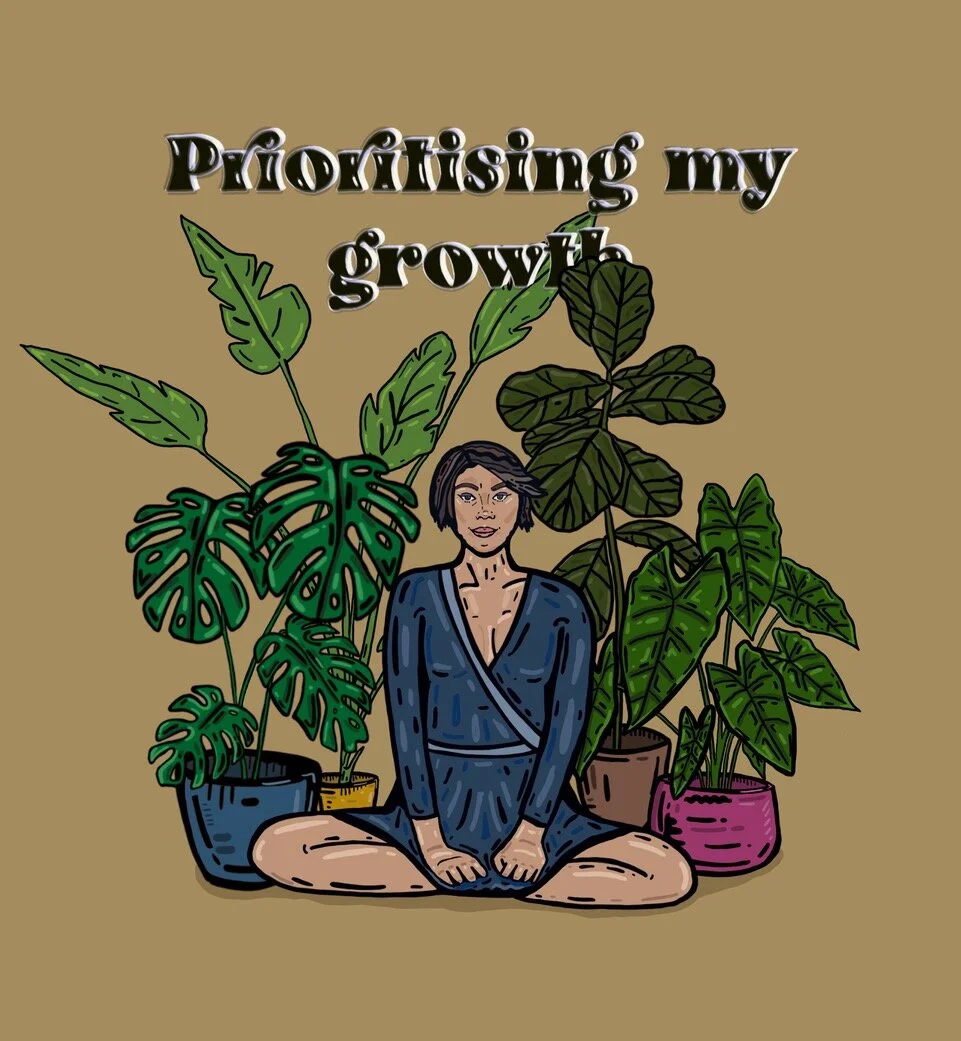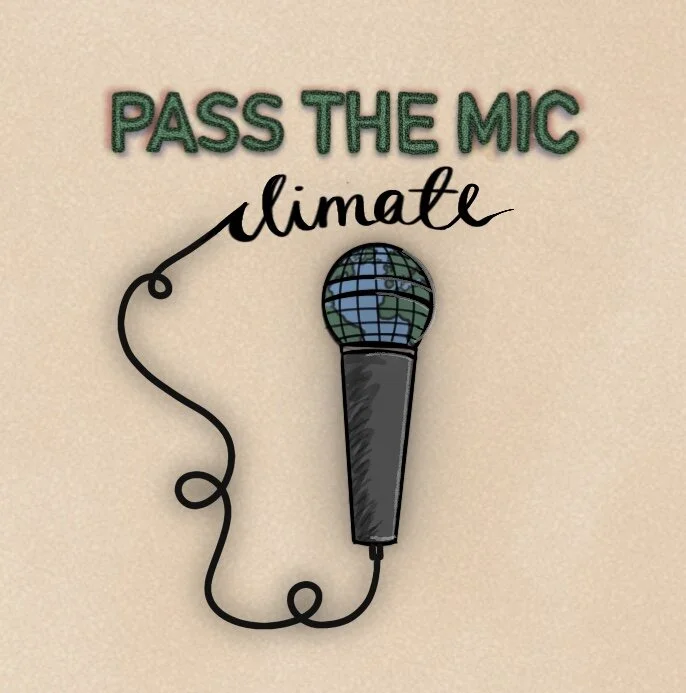Shelby x Tori Tsui
Q5. You’ve worked with activists internationally, which isn’t now possible face-to-face due to covid19. How has the online space allowed you to continue and develop these relationships?
While being in the same room as activists definitely has its perks, I’d be remiss to not talk about the importance of online connectivity. For example, Sail For Climate Action was able to live on (after COVID-19 affected our physical plans) just through communicating on zoom. Online communication also allows us to connect with different communities and advocate for causes where folks are often unable to find support locally.
That being said, I truly believe that we need to transcend online activism into ‘in real life’ action. I believe that it’s possible to do both.
Q6. If you could collaborate with anyone, who would it be?
Given that the climate crisis is often considered a communication problem I’d want to work with someone who has the power and influence to make a difference. I mentioned Sir David Attenborough before and to be honest, I still stand by that.
That being said, some of my most fulfilling collaborations have been with frontline activists. So it’d be a balance of the two.
So for some context, we connected through an online event about digital activism hosted by Container Mag, where we discussed taking up space in the digital sphere and digital activism. There are some visual notes from this event in this month’s issue of the zine.
Q1. What were some of your thoughts whilst preparing to talk on the panel for that event, particularly in relation to your climate justice and mental health activism?
Climate justice and mental health are often seen as separate avenues of activism but over the past two years I’ve realised that with any intersectional issue, we need to think about how they overlap. While my experiences with mental health inform a lot of my activism, for this particular panel I wanted to touch the nuance of social media as a safe space for those of us in the activist sphere. Often social media activism is highly disregarded and folks don’t really comprehend the emotional labour that goes on behind it. I wanted to make sure that I touched upon these facets when on the panel.
Q2. What has been your experience with using social media for advocacy?
One of my first roles with social media in activism was when I was organising a project called Sail For Climate Action. A team of us were responsible for the communication side of things which was our main avenue for publicising the project online. Sail For Climate Action was a project that aimed to raise the voices of Latin American and Caribbean youth in the climate sphere. Social media was pretty instrumental in raising funds for the project and also in reaching out to different participants.
Since then I’ve used social media to build relationships and networks with likeminded climate activists all over the world and to campaign for particular causes. In the summer of 2020, my friend’s indigenous ancestral land was invaded, through social media we circulated a petition and collected videos of solidarity which we sent to the Colombian Environmental Minister. Since then, a lawsuit has been opened up. We also raised money for her community when land grabbers invaded in the latter half of the year.
Most recently myself and many other youth activists started a campaign to get Sir David Attenborough to pass the mic. The initiative was a way of encouraging people of influence to spotlight most marginalised people and areas.
Q3. I really loved what you said about eco chambers being a space safe for many people. Could you talk a little more about that?
Echo chambers are often stigmatised in that they allow for the spread of misinformation or cut people off from the realities of what happens in the world. While we need to be mindful of these realities we also need to recognise the importance that online communities have in protecting and advocating for marginalised people. Often a marginalised existence is met with a lot of hostility in the ‘outside’ world, so I believe that it’s really important for folks to feel advocated for and supported. When it comes to breaking outside of the echo chamber this is where allies can step in, because we need to have these discussions with those who don’t necessarily agree with us.
Q4. You posted about the need to normalise paying activists. Could you talk a little bit about that?
Activism is often regarded as leisurely and ‘not work’ and often most marginalised groups are never compensated for their time. I want to break the stereotype that activism isn’t work. By all means I believe a lot of activism is successful due to voluntary nature but unfortunately we often see organisations, brands and high profile figures benefit from the labour of activists without compensating them. I believe this is highly unethical and reinforces the notion that activists are disposable and undervalued. Also when privileged activists set the precedent for working for free it can normalise marginalised groups not being paid.
Q7. Where can people find more of your work?
I exist primarily on instagram (@toritsui_) and I often post my work there but lately I’ve been crafting over at my Etsy Store (@bytoritsui). I donate portions of the proceeds to different charities each month and sometimes donate 100% of the profits according to a campaign in need.




